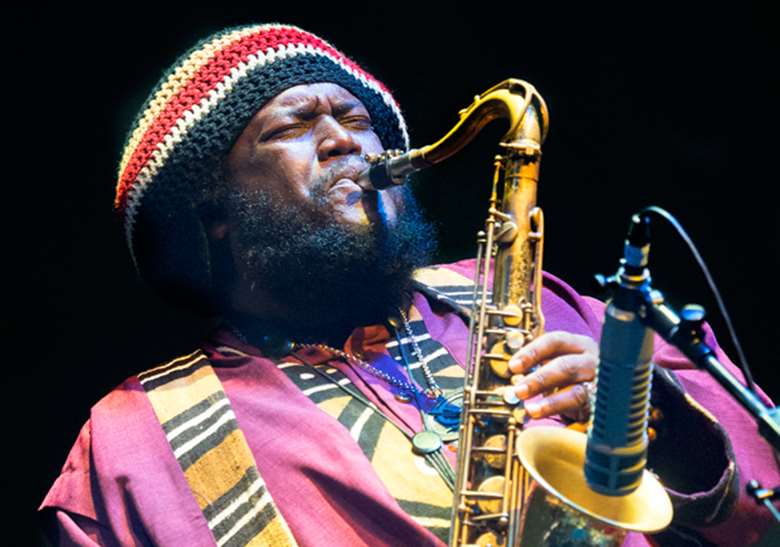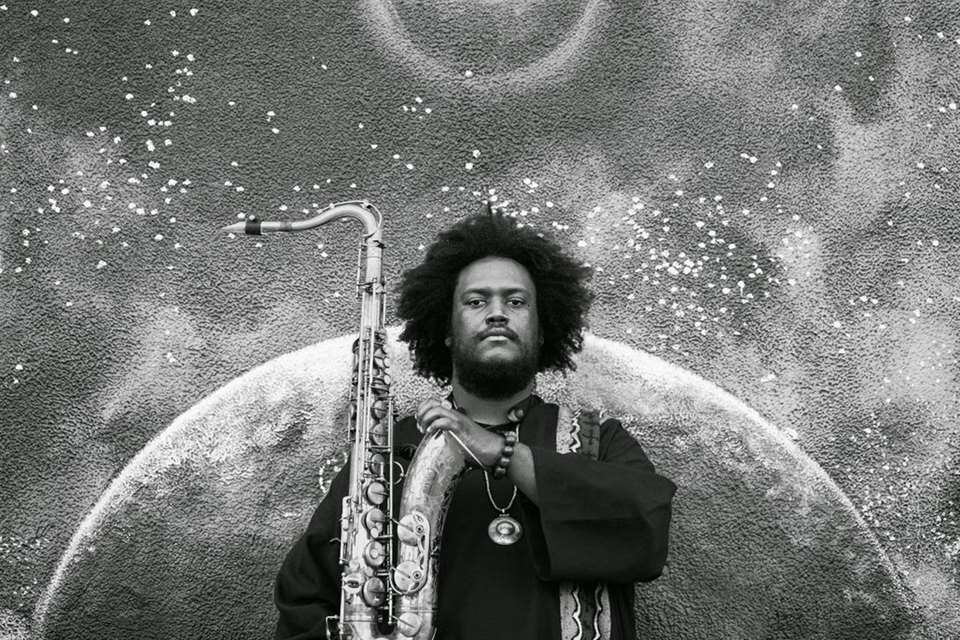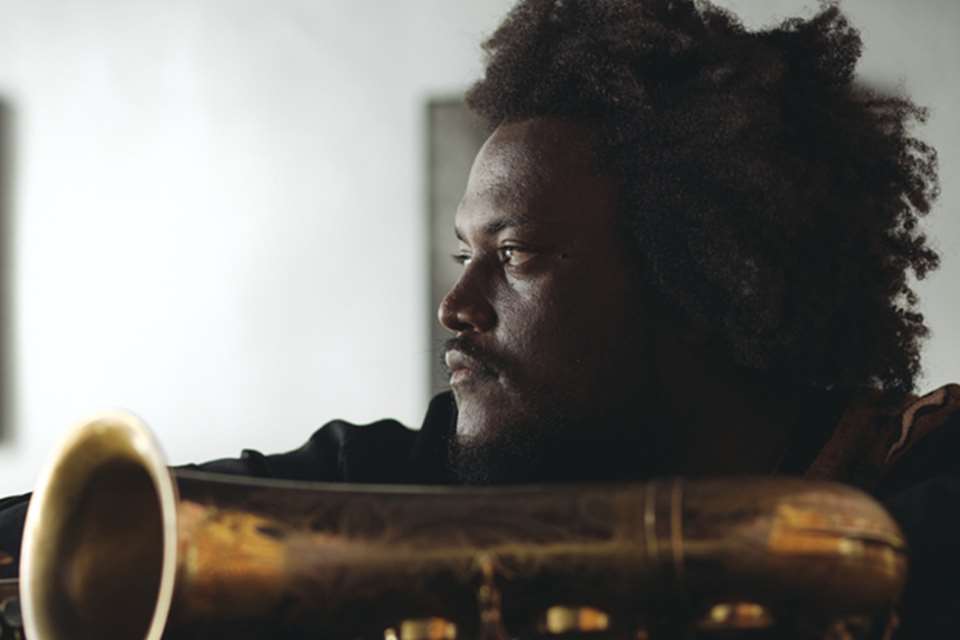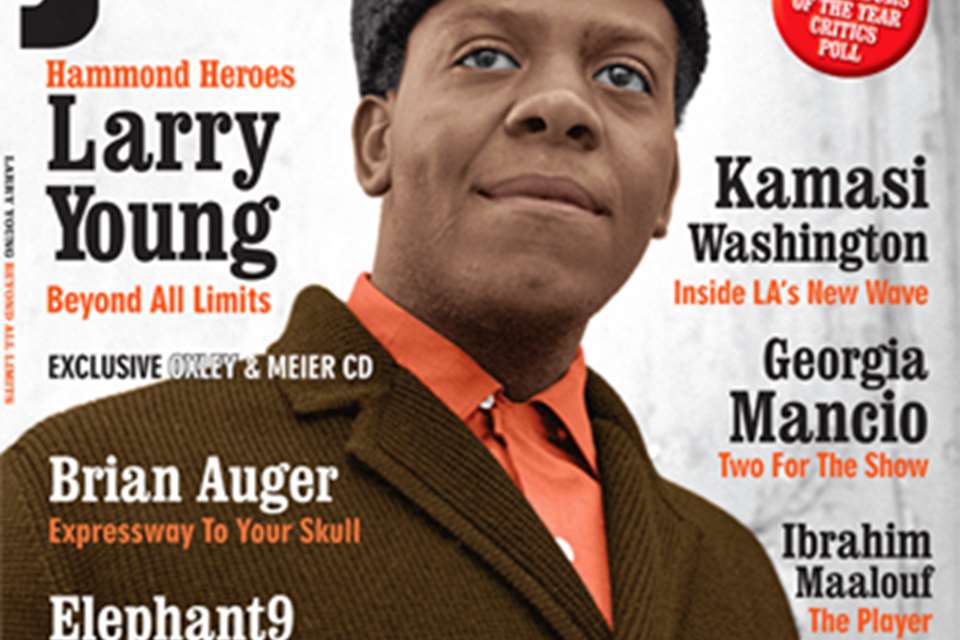Kamasi Washington
Kevin Le Gendre
A strong dynamic soloist who is adept at both changes and changes-free material Kamasi Washington has emerged as something of a spearhead for American, and more specifically West coast jazz, in the past few years

Without a doubt Washington has been the success story in jazz over the past few years. His 2016 debut The Epic was the kind of ambitious 3-CD set that most artists would record at a latter rather than earlier stage of their careers. However, the sprawling opus, which stood out for the considerable resources – double rhythm section, choir and string orchestra – deployed by the tenor saxophonist-composer, captured the public imagination to such a degree that several months after its release Washington made a sold-out appearance at the Barbican as part of the London Jazz festival, and also found himself in demand to headline at events such as A Love Supreme the following year.
With major support from British ‘old media’ such as Jazzwise, Jazz FM, and social media Washington built a large fanbase fairly rapidly and has since become something of a touring machine, performing at high profile rock and pop as well as jazz festivals.
The Epic achieved runaway success partly because its salient references, ‘70s Pharoah Sanders and the orchestral works of Horace Silver, as well as the hefty low end of hip-hop and funk, meant something to a generation of black music fans who came into jazz through samples and breakbeats. It was revealing that scores of young people turned up to Washington concerts.
But there was also the compelling back story of The West Coast Get Down, the collective of Los Angeles-based musicians whence he came, which featured strong personalities such as double bassist Miles Mosley, drummers Ronald Bruner and Tony Austin, bass guitarist Stephen Bruner aka Thundercat and vocalists Patricia Quinn and Dwight Trible.
Having both issued work on the Ninjatune label, Thundercat and Trible were known to UK audiences, but the arrival of the full WCGD crew simply added to the considerable buzz around Washington whose cheerleaders were keen to present the LA cohort very much as an alternative to the traditional jazz epicentre of New York and the East Coast.
In any case, Washington’s credentials were impressive. Son of saxophonist-flautist Ricky Washington, a one time member of Earth, Wind & Fire, he had been mentored by legends such as the big band veteran Gerald Wilson, who specifically challenged him to write for strings as well as rhythm sections.
Tied as he was to the jazz tradition Washington had an avowed interest in hip-hop and the world of urban music also embraced the saxophonist partly because of his association with the likes of producer Flying Lotus and rapper Kendrick Lamarr, to whose To Pimp A Butterfly Washington made a vital contribution as both arranger and player.
A strong dynamic soloist who is adept at both changes and changes-free material Washington has emerged as something of a spearhead for American, and more specifically West coast jazz, in the past few years, and the fact that he has maintained high standards on his other releases to date, the 2017 EP Harmony Of Difference and 2018 album Heaven And Earth suggest Washington has his peak creative years ahead of him.


